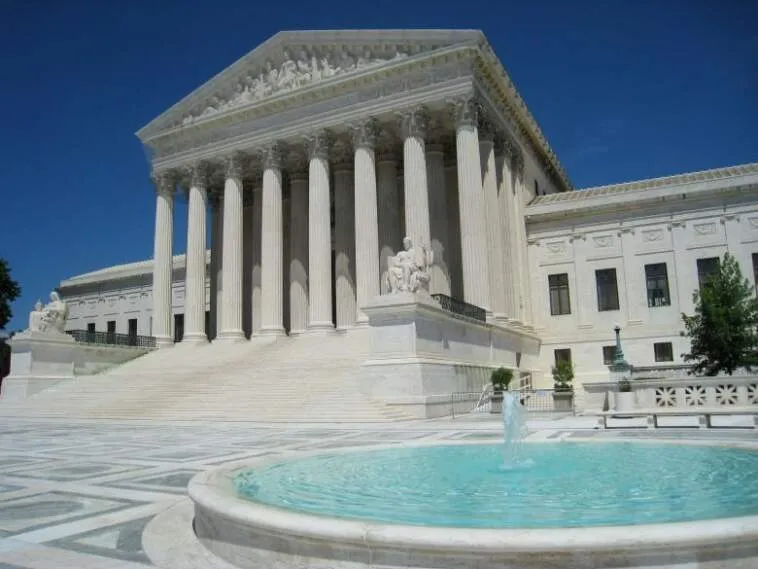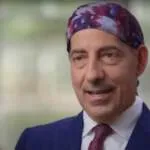(The New Yorker) There is uncertainty in every Presidential race, but an extraordinary number of questions about Donald Trump’s candidacy are ending up at the Supreme Court. For example, any reckoning of the odds that he will come out of the month of March as the presumptive Republican nominee has to factor in both his dominance in the primaries and the outcome of Trump v. Anderson, the case about whether he is disqualified from holding office again, under the Fourteenth Amendment, because of his involvement in the events of January 6th. In April, there will be oral arguments in at least two more Supreme Court cases: Joseph Fischer v. United States, on the sixteenth, and Trump v. United States, during the week of the twenty-second, which the Court agreed to take last Wednesday. Each has the potential to do a great deal of damage to one or more of the four criminal cases that Trump is facing. “Legal Scholars are extremely thankful for the Supreme Court’s Decision” to hear the latest case, Trump posted on Truth Social. He surely is.
Trump v. United States is the better known of the two April cases; indeed, it is notorious, because of how extreme Trump’s claims are. He is arguing that former Presidents are immune from criminal prosecution for any allegedly “official acts” that took place during their terms, unless they are impeached by the House and convicted by the Senate first. Trump was impeached but acquitted, a fact that he spun into a far-fetched complaint about double jeopardy, which the Court, to its credit, did not take up. (The Court also indicated that it would not address the question of whether his acts really were official.)
Trump has said that Presidents should have “absolute immunity” even if they do things that “cross the line.” The Supreme Court has not previously been very clear about where “the line” lies—which could be one reason that it took the case. Presidents are generally protected from criminal charges while in the White House, and ex-Presidents are immune from suits for civil damages for official acts. The Court of Appeals for the D.C. Circuit drew an admirably firm line in turning Trump down flat. It may be one of many tragedies for the country that the boundaries will now be worked out in the midst of an election campaign, by a Court with a conservative super-majority.
Trump’s attempts to claim immunity in lower courts have already delayed by more than two months his trial in the District of Columbia on charges, brought by the special counsel Jack Smith, related to January 6th. The earliest trial date now, even if the Court rules quickly, might be in late July or August. Given everything else on the calendar, though, it will be hard for the trial to take place before the election. And if Trump wins he can make the case go away.
But the immunity case may also be better known simply because Trump is Trump and Joseph Fischer is a guy who drove to Washington to take part in the Stop the Steal rally on January 6th, and then allegedly entered the Capitol in a surge of people during which a police officer was knocked down. It’s still a bombshell of a case, in terms of Trump’s prospects. At the time, Fischer worked—ironically enough—as a policeman in North Cornwall Township, Pennsylvania. (“May need a [new] job,” he later wrote in a Facebook message, according to prosecutors; that was correct.) He’d allegedly boasted in texts about being ready for a civil war; video suggested that he was in the Capitol for about four minutes, arriving after Congress had gone into recess. Fischer was charged with seven crimes, including assaulting an officer, engaging in disorderly conduct in a restricted area, and obstructing an official proceeding. (He pleaded not guilty.)
The obstruction charge is the only one at issue in the Supreme Court case. The Department of Justice has used it against more than three hundred and forty January 6th defendants, and Jack Smith is using it for two of the four felony charges he has brought against Trump (who has denied all wrongdoing). More than a dozen district-court judges allowed the charge; the one overseeing Fischer’s trial did not. A three-judge panel for the Court of Appeals for the D.C. Circuit overturned that ruling, 2-1, but the majority was itself divided about how to use the law.
It may be a surprise that the matter is so complex. The tallying of electoral votes looks like an official proceeding, and to say that the mob disrupted that work when it shouted for Mike Pence to be hanged is to put it mildly. But there are oddities. The charge relies on Section 1512(c) of the U.S. criminal code, which is part of the Sarbanes-Oxley Act. Congress passed it in 2002, partly in response to frustration at the shredding of documents by the accounting firm Arthur Andersen, during an investigation of enormous fraud by its client Enron. Subsection 1512(c)(1) refers to corruptly destroying or mutilating documents or records meant to be used in an official proceeding; subsection (c)(2) refers to “otherwise” obstructing a proceeding. The government argues that the second subsection is a “catchall” for a wide range of actions; Fischer contends that it is limited in scope by the first subsection. Indeed, before January 6th, the statute does not seem to have been used in a context that didn’t involve interfering with some kind of evidence in an investigation. To put it another way: How much like an Arthur Andersen accountant does Joseph Fischer have to be?






